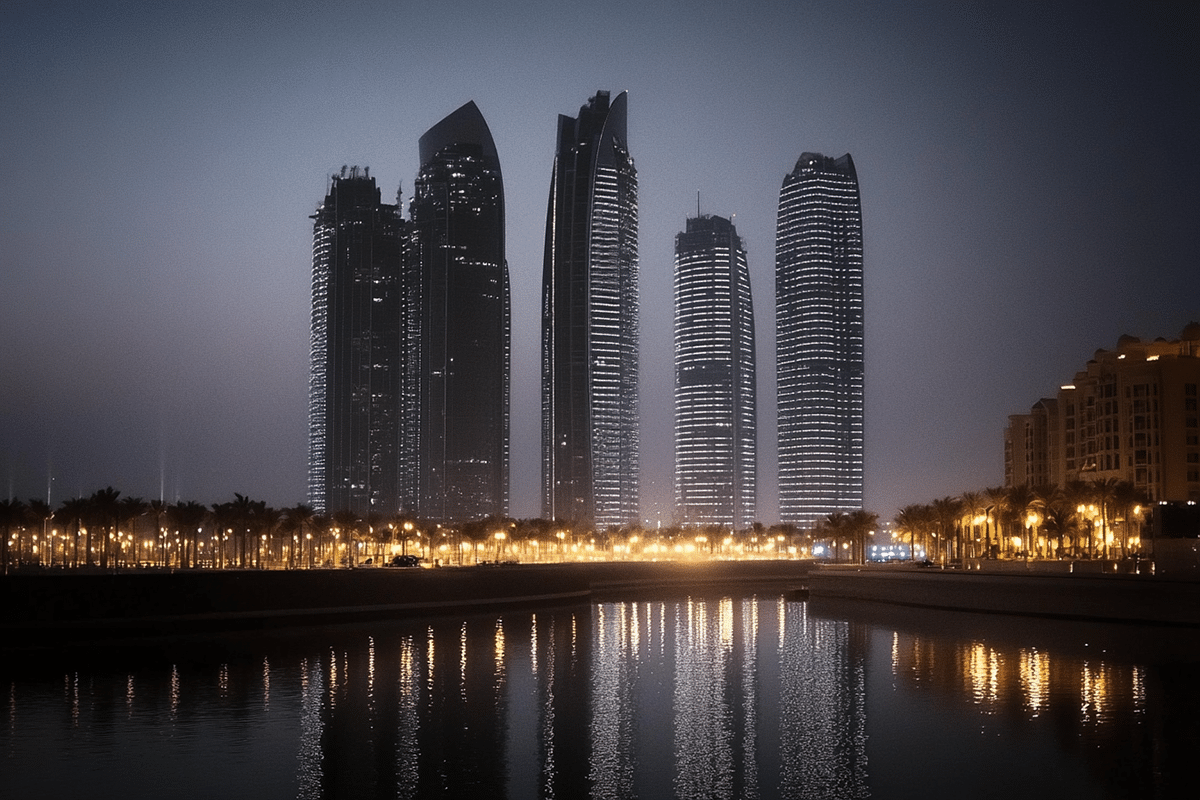Abu Dhabi’s economy has posted impressive growth in the third quarter of 2024, underscoring the resilience and strength of the emirate despite the ongoing challenges in the global landscape. According to the latest report by the Statistics Centre – Abu Dhabi (SCAD), the capital’s GDP grew by 4.5% year-on-year, reaching a record quarterly value of AED 301.8 billion ($82.2 billion). The notable surge in economic activity was largely driven by a significant 6.6% growth in the non-oil sector, a testament to Abu Dhabi’s successful diversification strategies and its ability to exceed global expectations.
The strong performance highlights the Emirate’s resilience, especially in a year marked by complex global economic shifts. For the first three quarters of 2024, Abu Dhabi’s GDP has expanded by 3.9%, with the non-oil economy seeing a 5.9% increase during the same period. This ongoing growth affirms the effectiveness of the multi-dimensional diversification strategies that have been at the core of the Emirate’s economic planning.
Abu Dhabi’s non-oil sector, which accounted for 54% of the overall economy in Q3 2024, continues to be a major driver of growth. This shift away from oil dependency is part of the broader vision to create a more sustainable and diversified economy. The ongoing strength of non-oil activities signals a shift toward industries such as finance, construction, real estate, and manufacturing, all of which have contributed significantly to the recent expansion.
A major factor contributing to this growth has been substantial government investments aimed at strengthening public-private partnerships and furthering economic diversification. In 2024 alone, the Abu Dhabi government approved 144 new projects with a budget totaling AED 66 billion. These projects are centered around key sectors such as housing, education, tourism, and natural resources, with a special focus on strengthening transport infrastructure. The government also launched several traffic improvement initiatives with a budget exceeding AED 3 billion, along with securing international agreements through Etihad Rail, enhancing the region’s connectivity.
The transport and storage sector experienced one of the most significant upswings, with an 18% growth rate in Q3 2024, contributing AED 7.1 billion to the economy. This growth was driven by rising general cargo volumes, increased container handling, and a surge in oil logistics and port revenues. Additionally, the financial and insurance sectors recorded an 11.6% expansion, underscoring Abu Dhabi’s growing position as a leading financial hub in the region. The sector’s growth reflected an increase in loans and deposits, which directly contributed AED 19.5 billion to the overall GDP.
The construction sector also showed notable progress, growing by 10% in the third quarter and contributing 8.8% to Abu Dhabi’s economy with a value added of AED 26.7 billion. This performance was largely fueled by investments in urban infrastructure projects, which spurred job creation within the sector. Similarly, the real estate market maintained positive momentum with a 6.1% increase in Q3, contributing AED 10.7 billion to the economy. The continued demand for high-quality real estate offerings demonstrates the sector’s important role in the diversification of the economic base.
Abu Dhabi’s manufacturing sector, though experiencing slower growth at 2% year-on-year, remains the largest non-oil sector, with a value added of AED 29.4 billion. Manufacturing remains crucial in diversifying the Emirate’s economy, reinforcing its status as a key pillar of the non-oil sector for the seventh quarter in a row.
The utilities sector, which includes electricity, gas, and water supply, also contributed positively to the economy, recording a 5% growth with a value added of AED 5.5 billion. This sector’s performance reflects the Emirate’s ongoing commitment to sustainability and efficient resource management.
Looking ahead, Abu Dhabi remains focused on accelerating its economic growth through smart, sustainable, and diversified strategies. The consistent positive performance of its key sectors, combined with strategic investments and a proactive approach to fostering a dynamic business environment, is expected to continue to position the emirate as a rising economic powerhouse in the region.





